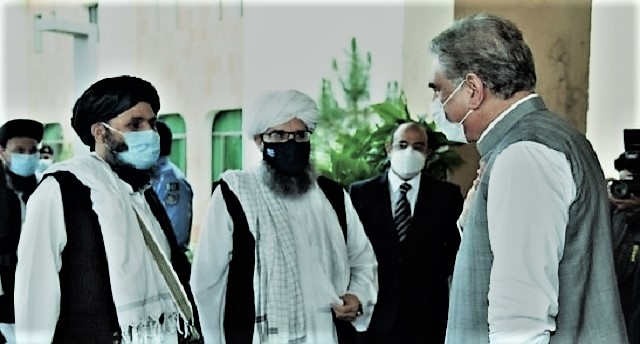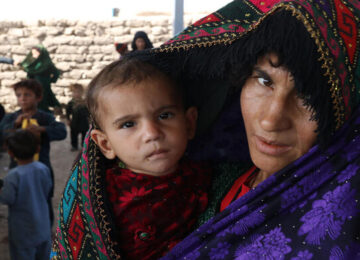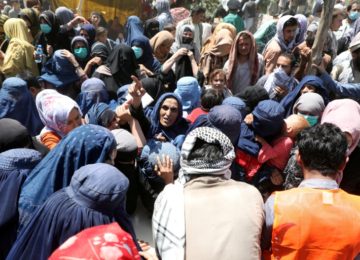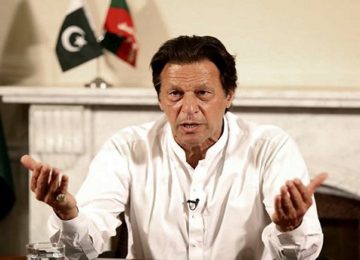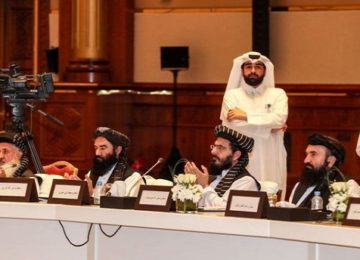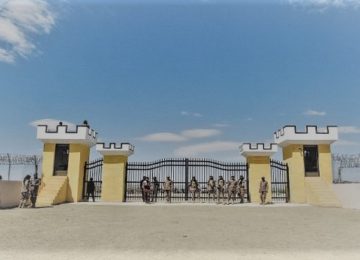August 26, 2020

Islamabad continues to consolidate positive efforts towards the end-game in Afghanistan, in a bid to bring peace to the country, ravaged by war for decades. Peace in Afghanistan has dividends not only for the regional countries but for all in a bigger picture. It engages with all stakeholders and tries to find a point of convergence on issues related to peace process in general and intra-Afghan dialogue in particular. In a similar development, a Taliban delegation called on Pakistani officials to discuss the dynamics of what lies ahead with reference to Afghan peace process.
“Pakistan means well and wishes peace and welfare for all Afghans,” stated foreign minister Shah Mehmood Qureshi in a message to Afghans after the third round of talks with Mullah Baradar, who led the Afghan Taliban delegation.
The Afghan Taliban delegation had arrived in Islamabad on August 24, 2020, on the invitation of Pakistan to what officials here term as a push for the start of the intra-Afghan peace dialogue.
Mullah Baradar, the chief negotiator had visited in October last year as well, when President Donald Trump abruptly called off the peace talks with the Taliban, citing the militant group’s continued attacks against the US-led foreign forces in Afghanistan.
Our sense is that the Taliban feel committed to the [February 29] Doha deal and are inclined to sort out minor roadblocks to the intra-Afghan negotiations, Qureshi told media.
“I expect our talks today (with Taliban delegates) will, God willing, help in finding a way forward,” the foreign minister said without further elaboration.
Later, is a short media briefing, Qureshi said, “we deliberated on the complications, and what could be their solution”. This implies flexibility on part of Taliban and also that they are open for discussion.
A statement by Pakistan’s Ministry of Foreign Affairs (MoFA) also underlined the need for implementation of the Doha deal “in its entirety paving the way for the earliest possible commencement of intra-Afghan negotiations,” the statement said.
This is being seen also directed at Kabul, where President Ghani has been reluctant in releasing some of the Taliban prisoners, the major sticking point as of now. Following the Doha deal, Kabul was required to release 5000 Taliban in return for about 1000 Afghan security forces being held by Taliban.
President Ghani had ordered the release of 4500 but refused to let the remaining go because of their involvement in heinous crimes. He also convened a traditional council to secure a consent for the final 400 prisoners. Some of the prisoners set to be released have committed violent attacks on Afghans and foreigners.
President Ghani’s spokesman Sediq Sediqqi told media early this week said that “two countries (Australia and France) had shared their concerns and reservations” on about six or seven among the remaining prisoners.
Taliban have already set free the detainees since the swap began in April, while Kabul has yet to release about 320 Taliban prisoners.
“France asks the Afghan government not to proceed with the release of several terrorists convicted of killing French citizens in Afghanistan,” the French Embassy in Kabul shad conveyed via Twitter.
Context
The talks ensued in the context of Pakistan’s recent reiteration on its commitment to all terrorism-related 22 UN resolutions since 1999. They deal with restrictions on Al-Qaeda, Daesh, Afghan Taliban and dozens of other groups and persons.
The latest August 18 directive on terror outfits issued by Pakistan’s MoFA was being seen as a pressure tactic to soften Taliban into a quick start to intra-Afghan negotiations. This was also seen as a signal of Pakistan gradually distancing itself from the Afghan militia.
Most of the UN resolutions include travel restrictions and financial sanctions against the Afghan Taliban and require member countries to strictly enforce them.
Officials associated with the talks process said the foreign minister also cautioned the Taliban delegation of the potential dangers of sabotage of the Afghan peace process by the “spoilers”.
Published under an arrangement between Afghan Studies Center (ASC) and MATRIX MAG.



